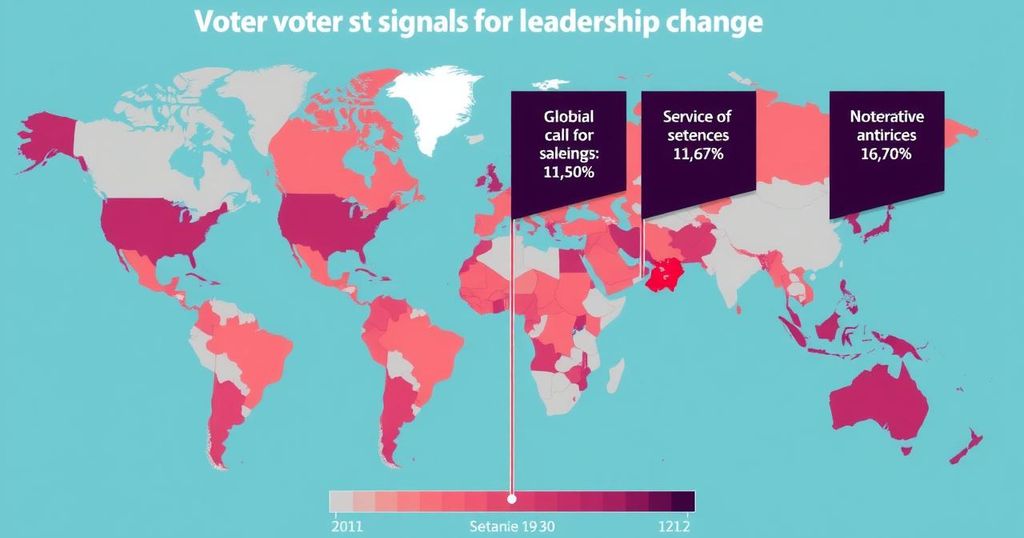In 2024, voters in 70 countries rejected incumbents, expressing dissatisfaction with economic disruptions and global instability. Major political shifts included the fall of long-standing governments in nations such as India and South Africa, along with the rise of alternative political movements. This reflects a growing trend towards populism and a call for change amid concerns over societal issues brought on by the pandemic and geopolitical tensions.
In the year 2024, voters across 70 countries, home to approximately half of the global population, expressed a strong desire for change, leading to significant electoral upheavals. Incumbent governments faced widespread rejection in nations such as India, the United States, Japan, France, and the United Kingdom, as citizens voiced their frustrations over economic volatility and geopolitical instability. This climate resulted in a staggering array of political shifts, including coalition governments formed in formerly dominant political landscapes and the rise of alternative candidates in various regions.
Political scientists have noted widespread discontent rooted in what is being termed “electoral long COVID,” a consequence of prolonged disruptions stemming from the pandemic that have exacerbated issues like high inflation and unemployment. High-profile losses included South Africa’s ANC, which now finds itself in coalition after three decades of governance. In India, Prime Minister Modi’s party suffered a devastating loss of its parliamentary majority, highlighting a significant shift in public sentiment.
The trend is evident in Europe, where traditional governing parties are increasingly threatened by far-right and populist groups, reflecting wider shifts toward conservatism. In the European Union, elections saw a rise in support for conservative populist parties, resulting in fragmented legislatures and unstable governments. This backdrop of rising extremism and dissatisfaction points to a broader global trend where citizens seek alternatives amid concerns of governmental efficacy.
The specter of authoritarianism loomed large, as candidates with familial political legacies and ties to populist movements asserted their influence. Notable results included the election of populist leaders in various countries amidst rigorous electoral challenges, with external factors like foreign interference and digital misinformation emerging as considerable threats to the integrity of the voting process.
As international political landscapes shift dramatically, the aftermath of elections, rife with challenges, underscores a deep-seated apprehension towards the state of democracy itself. The continued struggle for electoral integrity and governance satisfaction remains critical as nations grapple with the implications of collective voter sentiment in contemporary politics.
The 2024 elections globally encapsulated a significant shift in voter sentiment, reflecting widespread dissatisfaction with incumbent governments across multiple regions. Massive political changes occurred, primarily driven by economic hardships and social unrest catalyzed by the effects of the COVID-19 pandemic and geopolitical crises such as the war in Ukraine. This turbulent political landscape featured a range of outcomes, including electoral victories for opposition candidates and increased support for populist parties, indicating an emergent demand for change among the electorate.
The tumultuous events of 2024 highlight a pivotal year for global democracy, as voters decisively cast their ballots against incumbents in various nations, signifying a demand for new leadership and direction amid economic and social turmoil. The rise of alternative candidates and parties underscores an urgent need for reform within established political frameworks. Moving forward, the challenges of governance, electoral integrity, and public satisfaction with democracy will remain foundational topics as global citizens seek to navigate complex political environments.
Original Source: www.pbs.org






